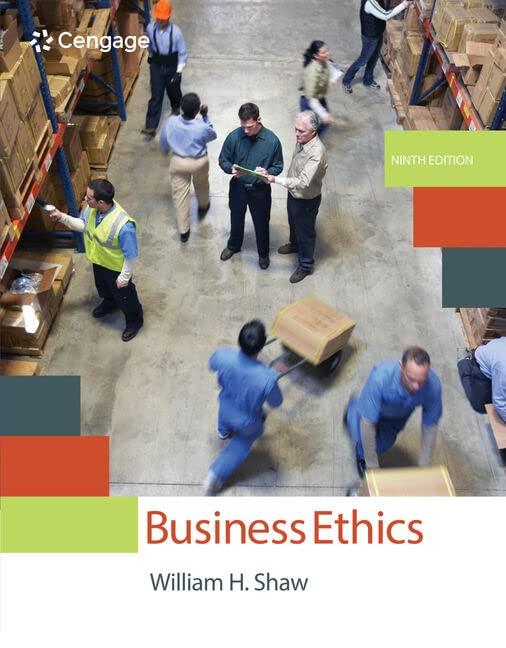WITH ANNUAL SALES OF OVER $19 BILLION and annual profits of around $1.9 billion, Nike is one
Question:
WITH ANNUAL SALES OF OVER $19 BILLION and annual profits of around $1.9 billion, Nike is one of the giants in the sports apparel business, and its trademark
“Swoosh” logo is recognized around the world. However, for a company of its size, Nike directly employs surprisingly few workers—only about 22,000. That is because overseas contractors manufacture all Nike’s products. These independent contractors employ approximately 600,000 workers at 910 factories, mostly in China, Indonesia, Vietnam, and Thailand.
Like many other firms, Nike outsources its manufacturing to take advantage of cheap overseas labor. But the price of doing so began getting higher for Nike in the late 1990s, when anti-sweatshop activists started campaigning against the company, charging that the third-world workers making its products were exploited and abused. Activists on many college campuses, for instance, encouraged their peers to boycott Nike shoes and clothing and tried to pressure their universities’
athletic departments not to sign deals with Nike for team sports apparel.
Instead of ducking the issue, as other companies might have, Nike responded vigorously to the criticisms. At the University of North Carolina, for example, Nike ran full-page ads in the student newspaper, asserting that it was a good corporate citizen and upheld humane labor standards. It sent representatives to meet with student activists, and company CEO Philip Knight took the unusual step of showing up at an undergraduate seminar on corporate globalization to defend his company. Nike issued press releases and sent letters to many college presidents and athletic departments, asserting, among other things, that Nike paid “on average, double......
Discussion Questions 1. In this case, was Nike engaged in commercial speech, or were its statements political or social speech? What determines whether speech is commercial or not?
2. Was the out-of-court settlement a reasonable resolution of this case? What would have been the good or bad consequences of the Supreme Court’s deciding in Nike’s favor? Of its deciding in Kasky’s favor?
3. Should commercial speech receive less First Amendment protection than other types of speech, or does this violate the rights of corporations? Explain your answer.
4. Do corporations have the same moral rights as individual human beings? Should they have the same political rights? Is it morally permissible to limit the speech of corporations in ways that would be wrong if applied to the speech of individual citizens? If it is permissible, is it good public policy?
5. Does Nike have a social responsibility to address matters of public concern such as the working conditions in its overseas operations? If it chooses to do so, does it have an obligation to make its statements as truthful and accurate as it can? Under what circumstances should corporations be held liable for the truth of their public statements?
Step by Step Answer:





